Nvidia GeForce RTX 5070 Ti: Performance Reviewed
The Nvidia GeForce RTX 5090, upon its release, was a disappointment for many due to its marginal improvement over the RTX 4090, coupled with a significantly higher price tag. On the other hand, the Nvidia GeForce RTX 5070 Ti, despite not offering a substantial speed increase over its last-generation counterpart, comes at a more budget-friendly price. Priced at a base of $749, the RTX 5070 Ti emerges as an attractive option for 4K gaming enthusiasts looking for value. However, transparency is key: the RTX 5070 Ti reviewed here is an aftermarket model from MSI, priced at a steep $1,099, which is even higher than the RTX 5080's $999. If you can secure the RTX 5070 Ti at its base price of $749, it stands out as the best graphics card for the majority, particularly for those eyeing 4K gaming.
Purchasing Guide
The Nvidia GeForce RTX 5070 Ti becomes available on February 20, 2025, starting at $749. Be aware, this is just the entry-level price; numerous versions of this GPU will be available at higher price points. At $749, it's a compelling choice, but its appeal diminishes as the price approaches that of the RTX 5080.
Nvidia GeForce RTX 5070 Ti – Photos
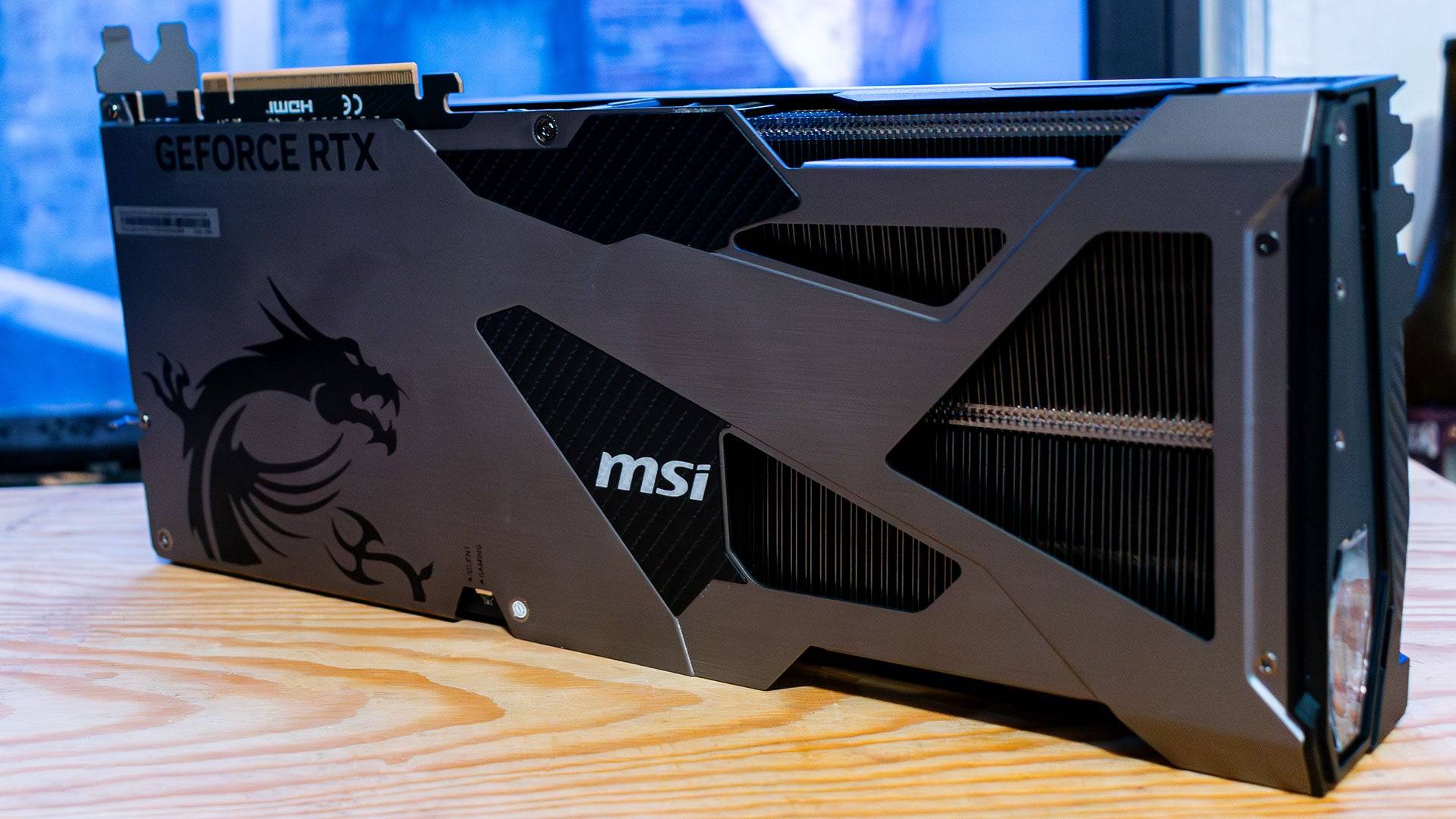
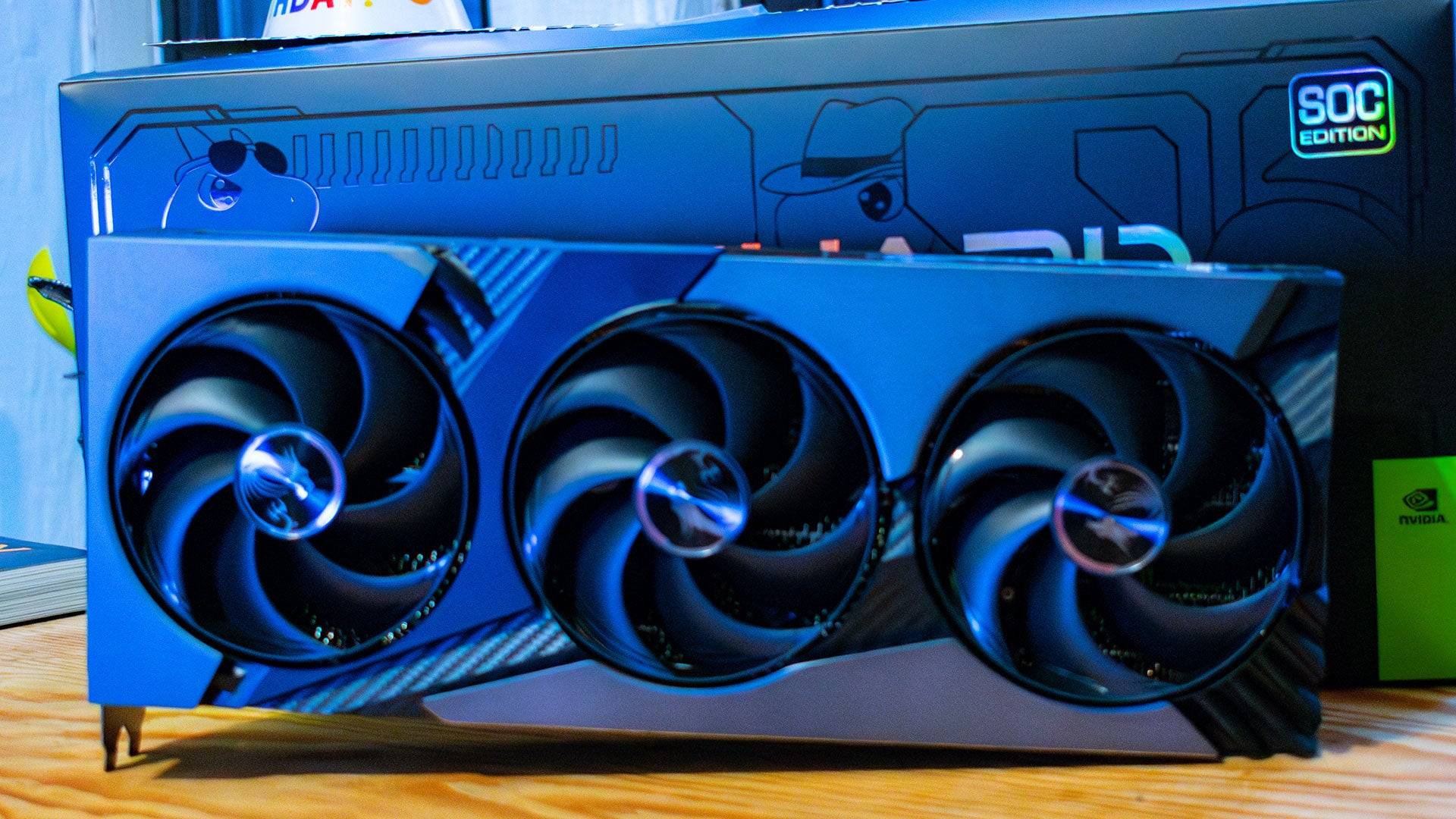 6 Images
6 Images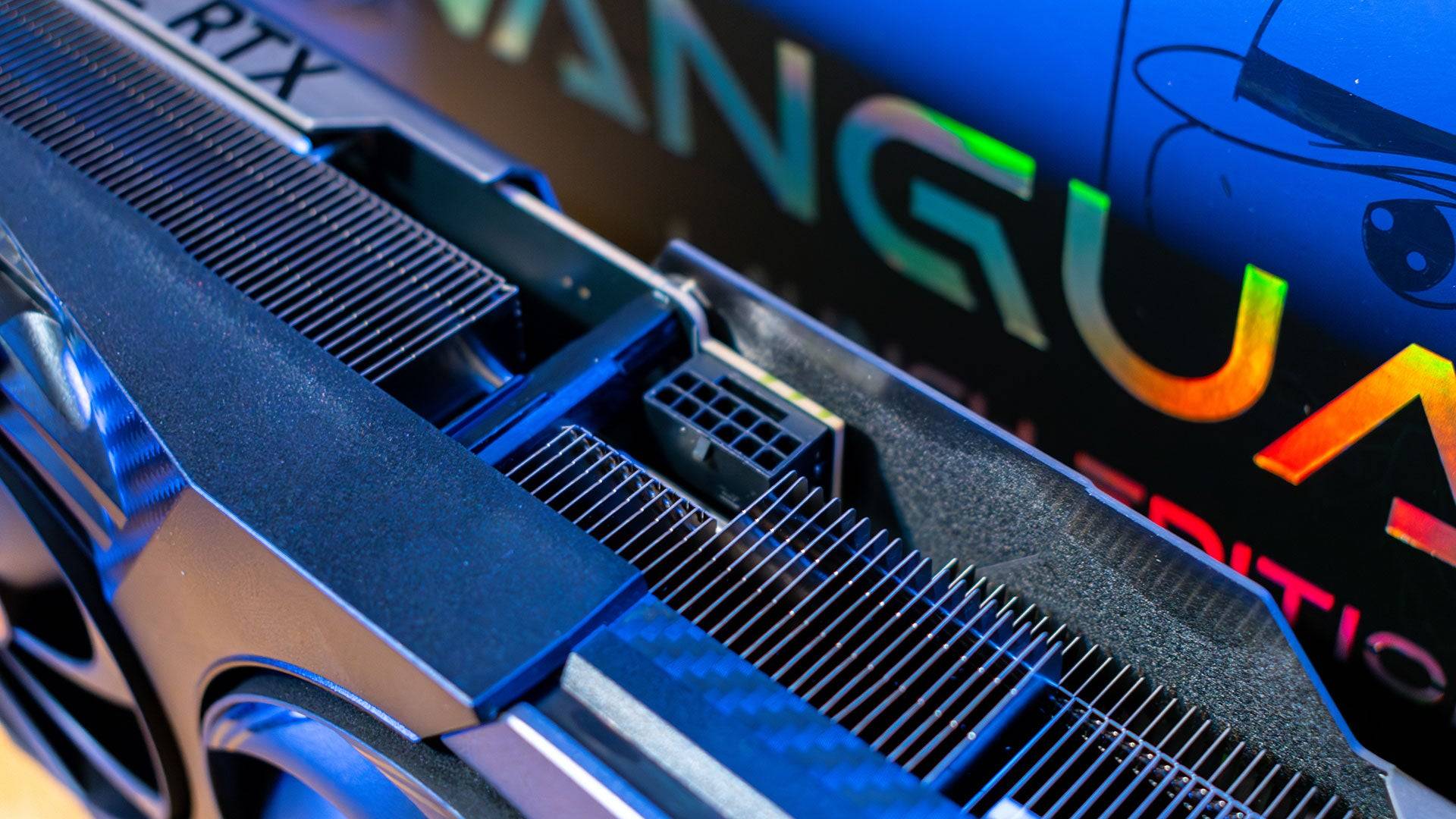
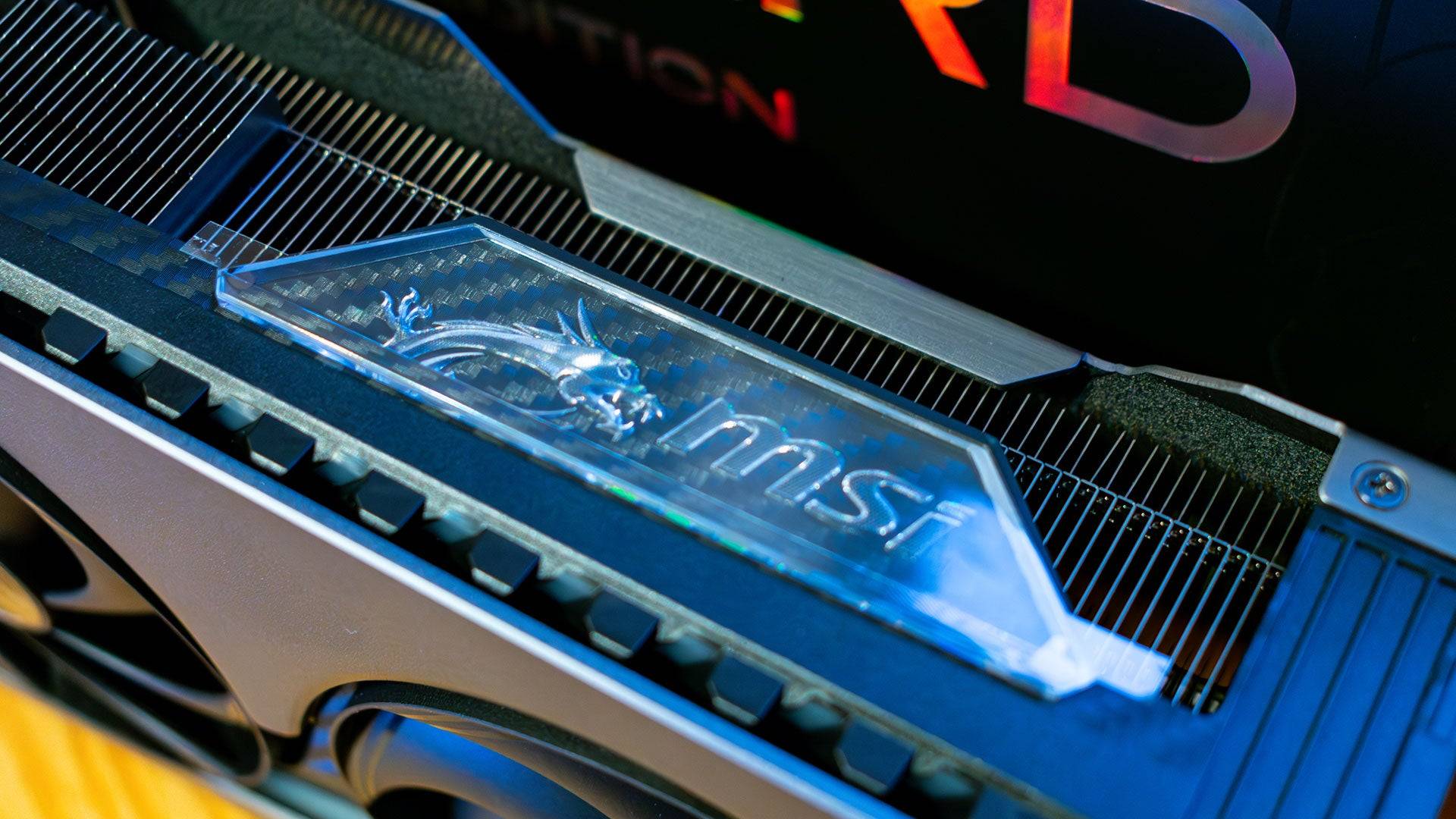
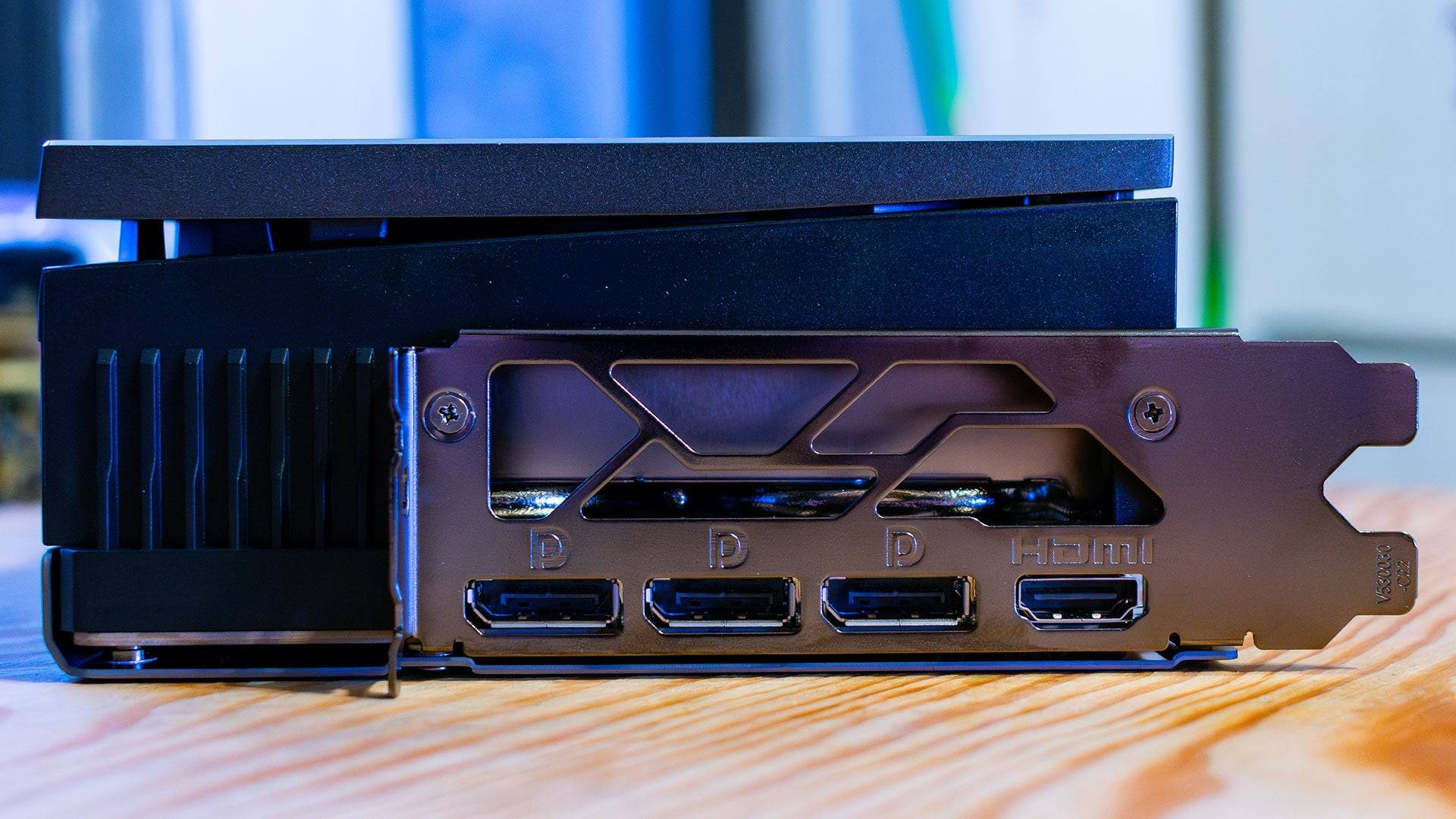

Specs and Features
The Nvidia GeForce RTX 5070 Ti is the third GPU built on Nvidia’s Blackwell architecture, originally designed for AI supercomputers like those powering ChatGPT. This architecture has been adapted for gaming GPUs, maintaining a strong AI focus. The RTX 5070 Ti utilizes the same GB203 GPU as the RTX 5080 but with 14 of its streaming multiprocessors (SM) disabled, resulting in 70 SMs, 8,960 CUDA cores, 70 RT cores, and 280 Tensor Cores. It comes with 16GB of GDDR7 RAM, albeit slightly slower than the RTX 5080's. The Tensor Cores are crucial, enhancing the power of AI upscaling and frame generation, which are central to Nvidia's strategy for this card.
Blackwell introduces an AI Management Processor (AMP), shifting workload management from the CPU to the GPU, enhancing the efficiency of processes like DLSS and frame generation. DLSS has been updated to run on a Transformer model, improving image quality by reducing ghosting and other artifacts. DLSS 4 introduces "Multi-Frame Generation" (MFG), capable of generating up to three AI frames for each rendered frame, although this increases latency. Nvidia's Reflex technology helps mitigate this latency, ensuring smoother gameplay on high-refresh-rate monitors.
With a Total Board Power of 300W, the RTX 5070 Ti is not significantly more power-hungry than its predecessors. Nvidia suggests a 750W power supply, but for safety, especially with high-end models like the MSI Vanguard Edition, an 850W PSU is recommended.

DLSS 4 – Is It Worth It?
Nvidia's primary selling point for the RTX 5070 Ti is DLSS 4, especially its multi-frame generation capability. This technology is designed to maximize the potential of high-refresh-rate gaming monitors, though it does not significantly reduce latency. MFG works by analyzing each rendered frame and using motion vector data from the game engine to predict and generate new frames, potentially increasing frame rates by up to 4x.
Testing in Cyberpunk 2077 with the Ray Tracing Overdrive preset and DLSS set to performance, the RTX 5070 Ti achieved 46 fps with 43ms latency. Enabling 2x frame generation increased this to 88 fps with 49ms latency, and 4x frame generation reached 157 fps but with 55ms latency. In Star Wars Outlaws, the card hit 67 fps at 4K Max settings with DLSS on performance, improving to 111 fps with 2x frame gen and 188 fps with 4x frame gen, though latency increased from 47ms to 37ms.
While MFG enhances visual fluidity, it does not make games more responsive due to increased latency. However, this latency increase is minimal with a solid frame rate, and the RTX 5070 Ti handles 4K gaming well, minimizing concerns about lag and artifacts.
Nvidia GeForce RTX 5070 Ti – Benchmarks
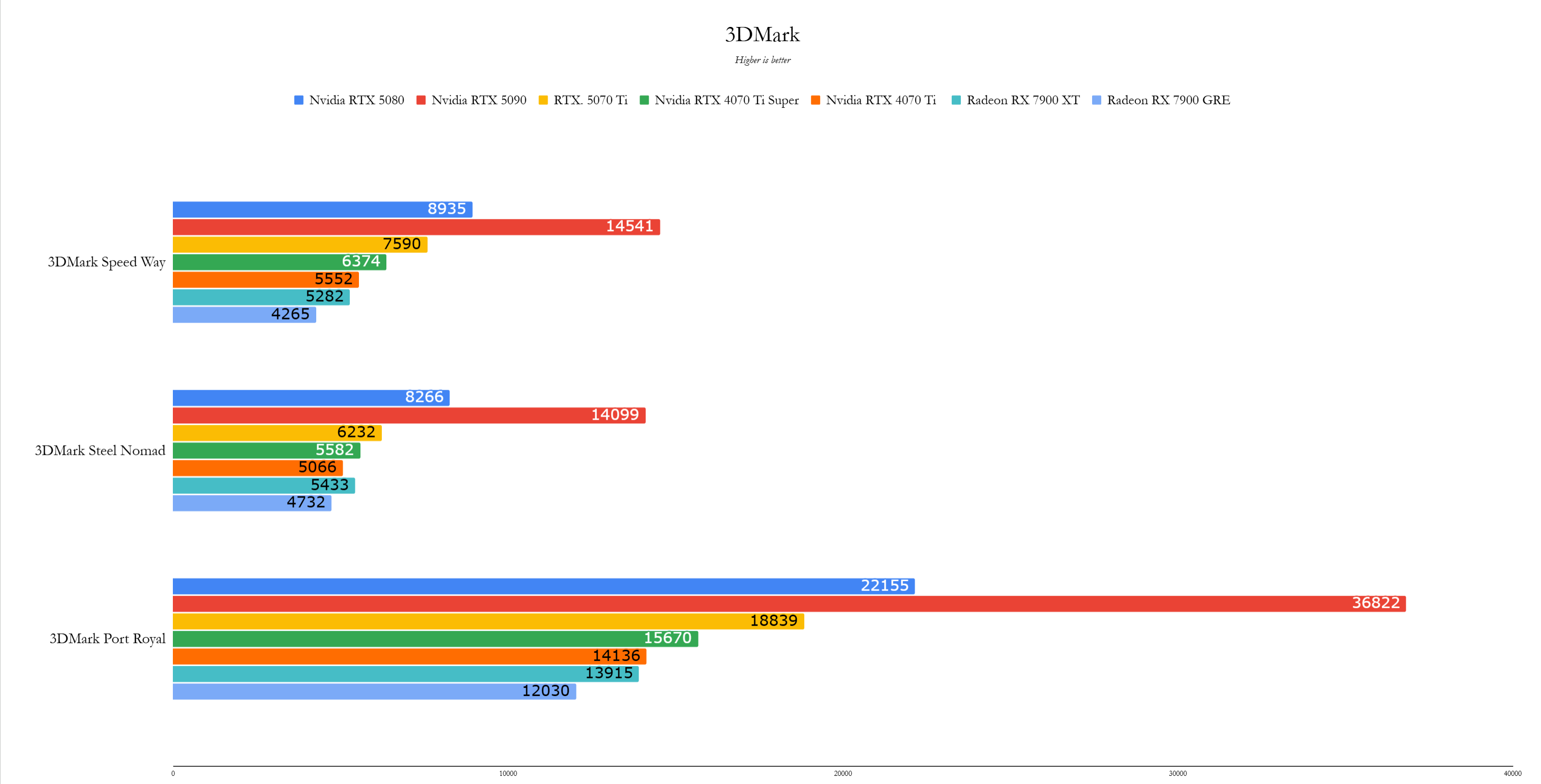
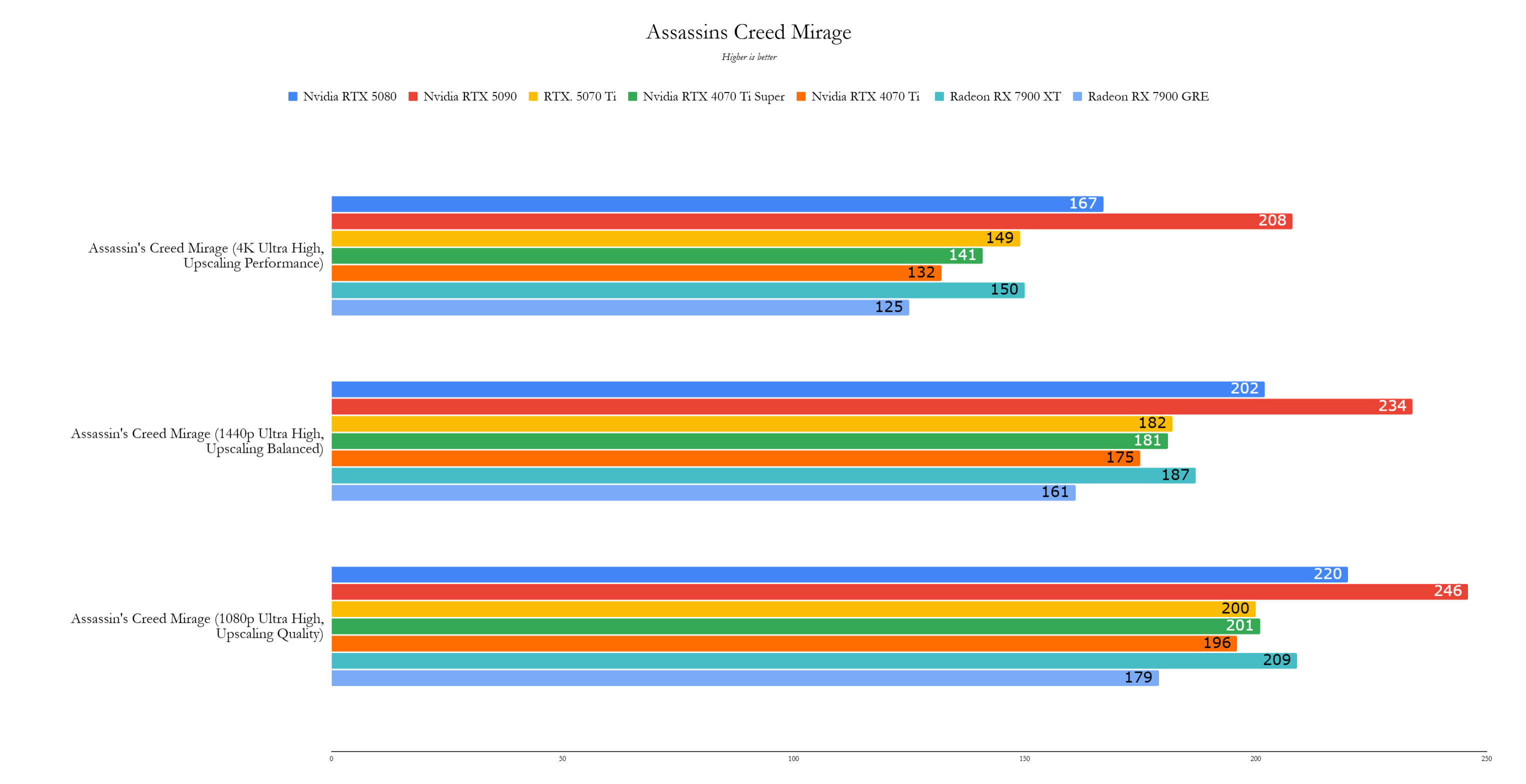 12 Images
12 Images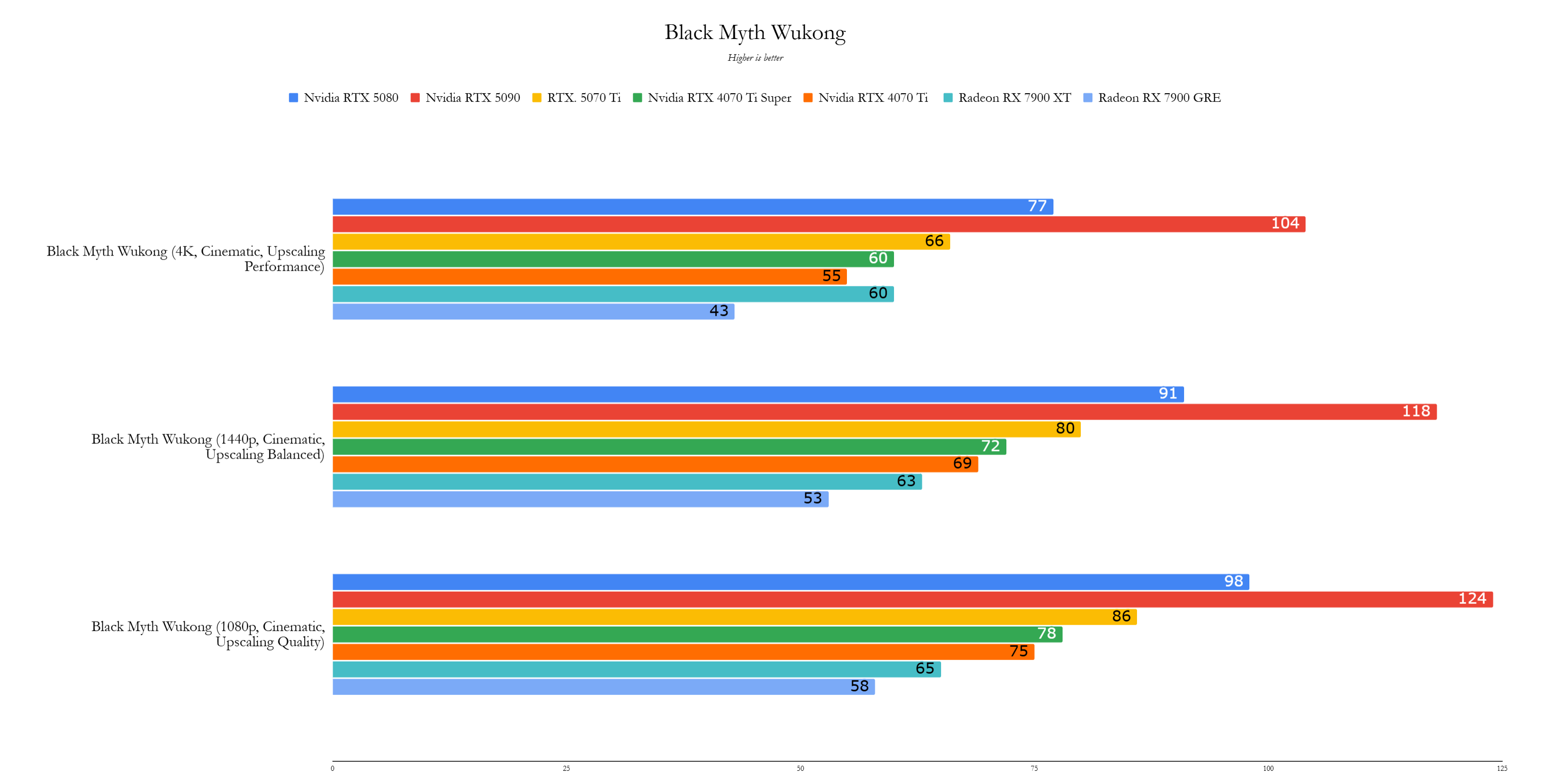
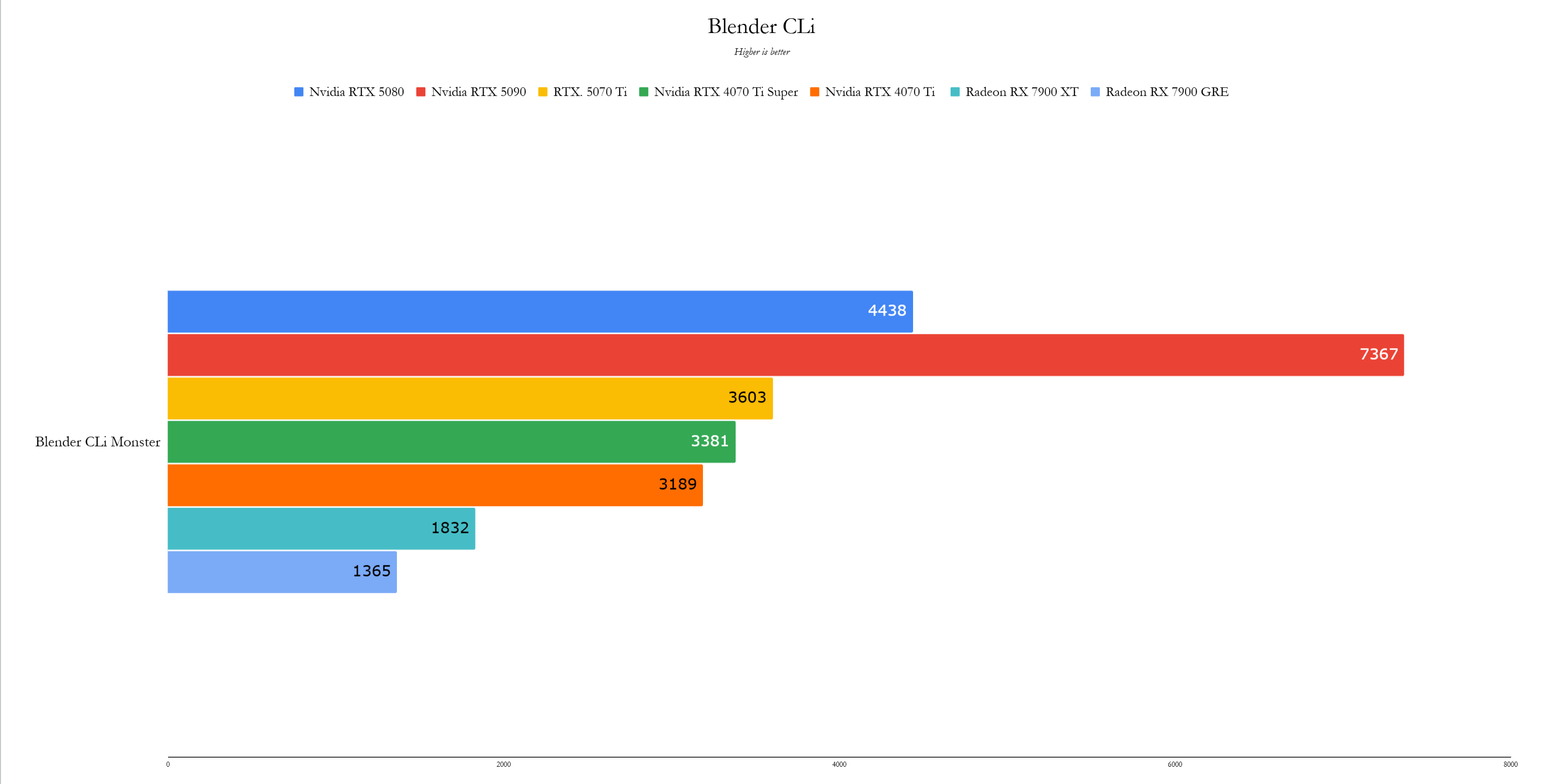
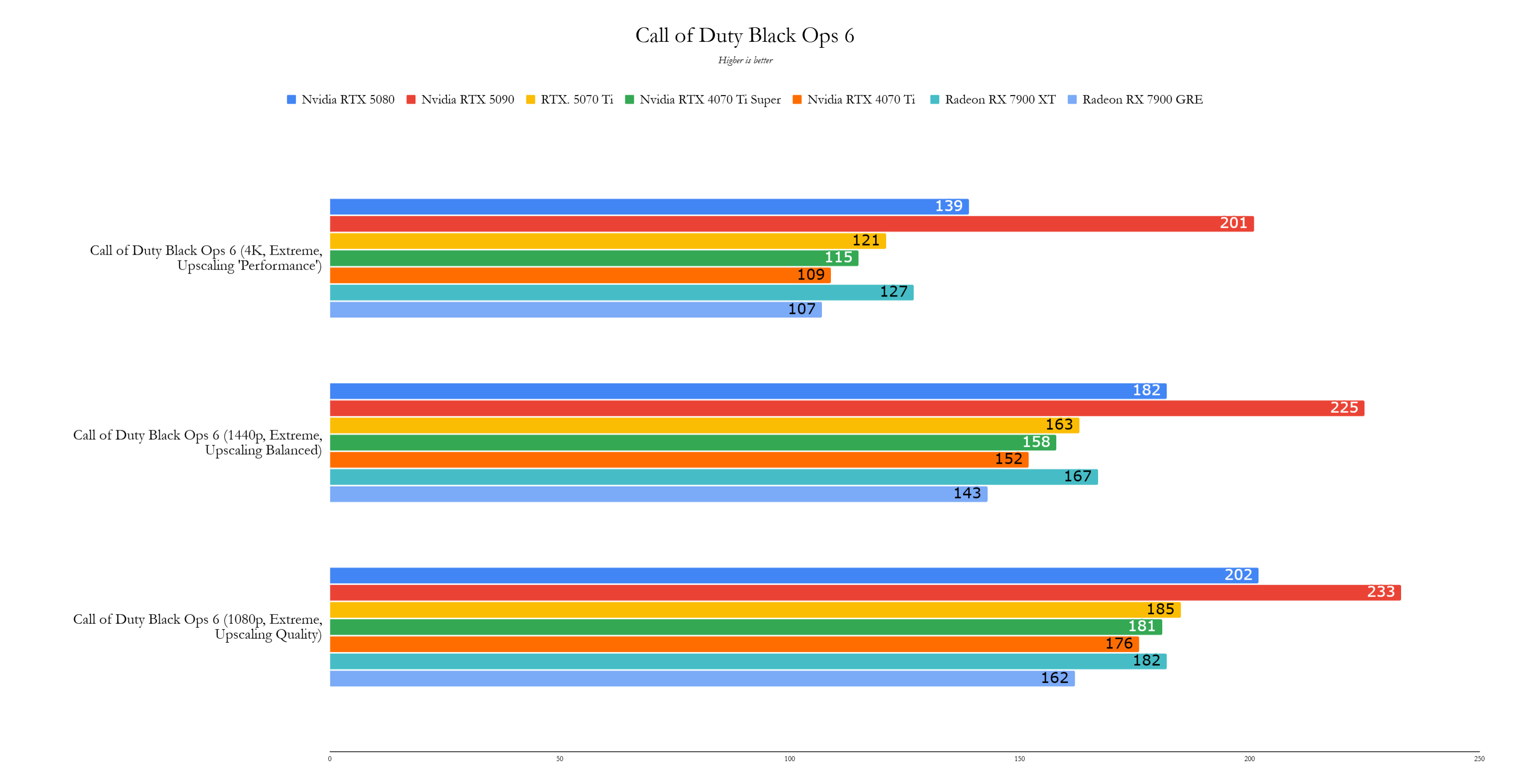
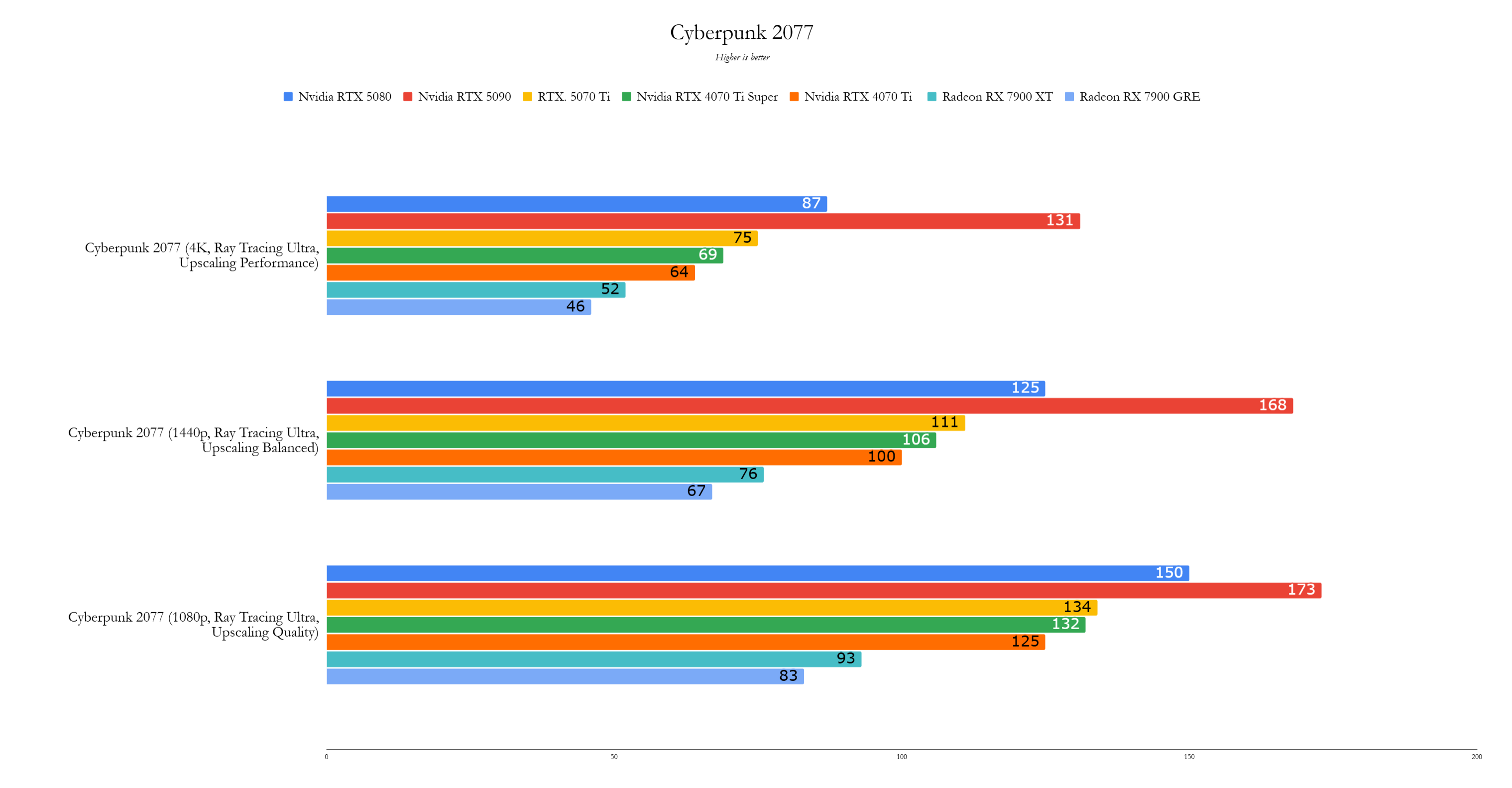
Performance
At 4K resolution, the Nvidia GeForce RTX 5070 Ti outperforms the RTX 4070 Ti Super by about 11% and the RTX 4070 Ti by 21%, offering a better generational uplift than the RTX 5080. This makes it the best value graphics card of the current generation. In my tests, the RTX 5070 Ti consistently delivered over 60 fps at 4K, even in demanding titles like Black Myth Wukong and Cyberpunk 2077.
My test system included an AMD Ryzen 7 9800X3D, Asus ROG Crosshair X870E Hero motherboard, 32GB G.Skill Trident Z5 Neo RAM at 6,000MHz, a 4TB Samsung 990 Pro SSD, and an Asus ROG Ryujin III 360 CPU cooler. The MSI Vanguard Edition of the RTX 5070 Ti was tested at stock settings to reflect the performance of the base model at its $749 MSRP.
All games were tested with the most recent drivers available at the time, and no frame generation was used. In 3DMark Speed Way, the RTX 5070 Ti scored 7,590 points, significantly ahead of the RTX 4070 Ti Super's 6,374 and the RTX 4070 Ti's 5,552. In Port Royal, it achieved 18,839 points, compared to 15,670 and 14,136 for the 4070 Ti Super and 4070 Ti, respectively.
In gaming benchmarks, the RTX 5070 Ti showed varying results. In Call of Duty: Black Ops 6 at 4K Extreme, it achieved 121 fps, a modest 5% improvement over the RTX 4070 Ti Super. In Cyberpunk 2077, it led with 75 fps at 4K with the Ray Tracing Ultra preset, surpassing the RTX 4070 Ti Super by 9% and the RTX 4070 Ti by 17%. In Metro Exodus: Enhanced Edition, it managed 48 fps at 4K on the Extreme preset, slightly better than the 45 fps of the RTX 4070 Ti Super.
Red Dead Redemption 2 was an exception, with the RTX 5070 Ti achieving 113 fps, 2% slower than the RTX 4070 Ti Super. In Total War: Warhammer 3, it averaged 78 fps at 4K max settings, a 15% improvement over the RTX 4070 Ti Super and 30% over the RTX 4070 Ti. In Assassin's Creed Mirage, it reached 149 fps at 4K Ultra High, outperforming the RTX 4070 Ti Super by 6% and the RTX 4070 Ti by 13%.
Black Myth Wukong, a highly demanding game, saw the RTX 5070 Ti achieve 66 fps at 4K with the Cinematic Preset and DLSS at 40%, a 10% improvement over the RTX 4070 Ti Super. In Forza Horizon 5, it reached 152 fps at 4K Extreme, a 15% and 21% improvement over the RTX 4070 Super and RTX 4070 Ti, respectively, and even outperformed the Radeon RX 7900 XT by 10%.
In conclusion, the RTX 5070 Ti, if found at its base price of $749, offers excellent value for 4K gaming, delivering a notable performance uplift over its predecessor at a more affordable price point than the RTX 4070 Ti.




























